Pub history
The Harry Clasper
These former council offices are in the heart of a village which became a Tyneside suburb. They were built in 1904 by the Carr-Ellison family which leased the building to the former Whickham Urban District Council. The premises are now named after the local boat-builder and oarsman Harry Clasper, who became a famous sportsman in Victorian times. Clasper was a pub landlord throughout his racing career and is buried in St Mary’s churchyard.
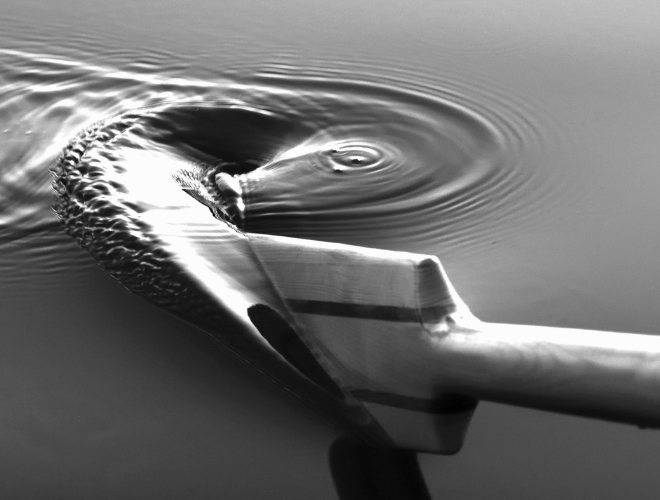
These former council offices are in the heart of a village which became a Tyneside suburb. They were built in 1904 by the Carr-Ellison family which leased the building to the former Whickham Urban District Council. The premises are now named after the local boat-builder and oarsman Harry Clasper, who became a famous sportsman in Victorian times. Clasper was a pub landlord throughout his racing career and is buried in St Mary’s churchyard.
A photograph and text about The Harry Clasper
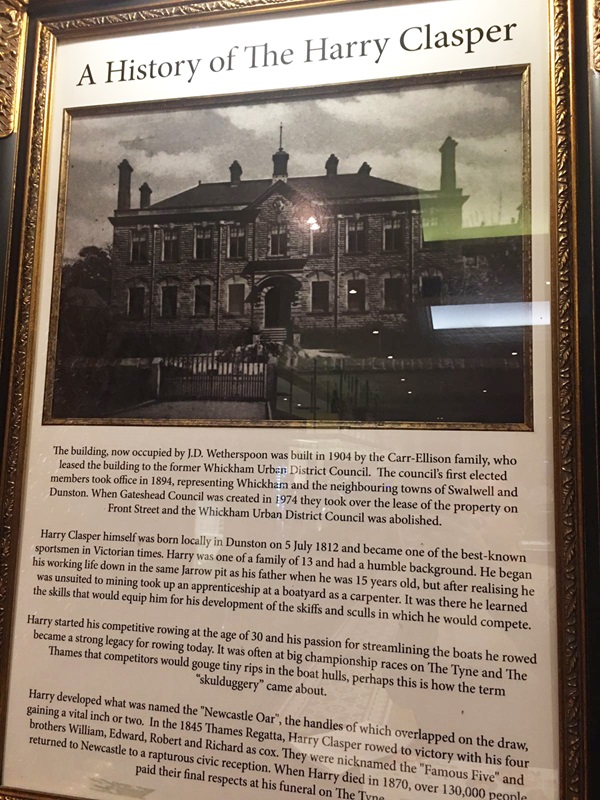
The text reads: The building, now occupied by J D Wetherspoon, was built in 1904 by the Carr-Ellison family, who leased the building to the former Whickham Urban District Council. The council’s first elected members took office in 1894, representing Whickham and the neighbouring towns of Swalwell and Dunston. When Gateshead Council was created in 1974, they took over the lease of the property on Front Street, and Whickham Urban District Council was abolished.
Harry Clasper himself was born locally in Dunston on 5 July 1812 and became one of the best-known sportsmen in Victorian times. Harry was one of a family of 13 and had a humble background. He began his working life down in the same Jarrow pit as his father when he was 15 years old, but after realising he was unsuited to mining took up an apprenticeship at a boatyard as a carpenter. It was there he learned the skills that would equip him for his development of the skiffs and sculls in which he would compete.
Harry started his competitive rowing at the age of 30, and his passion for streamlining the boats he rowed became a strong legacy for rowing today. It was often at big championship races on The Tyne and The Thames that competitors would gouge tiny rips in the boat hulls; perhaps this is how the term ‘skulduggery’ came about.
Harry developed what was named the ‘Newcastle Oar’, the handles of which overlapped on the draw, gaining a vital inch or two. In the 1845 Thames Regatta, Harry Clasper rowed to victory with his four brothers William, Edward, Robert and Richard as cox. They were nicknamed the ‘Famous Five’ and returned to Newcastle to a rapturous civic reception. When Harry died in 1870, over 130,000 people paid their finals respect at his funeral on The Tyne.
A photograph of Harry Clasper
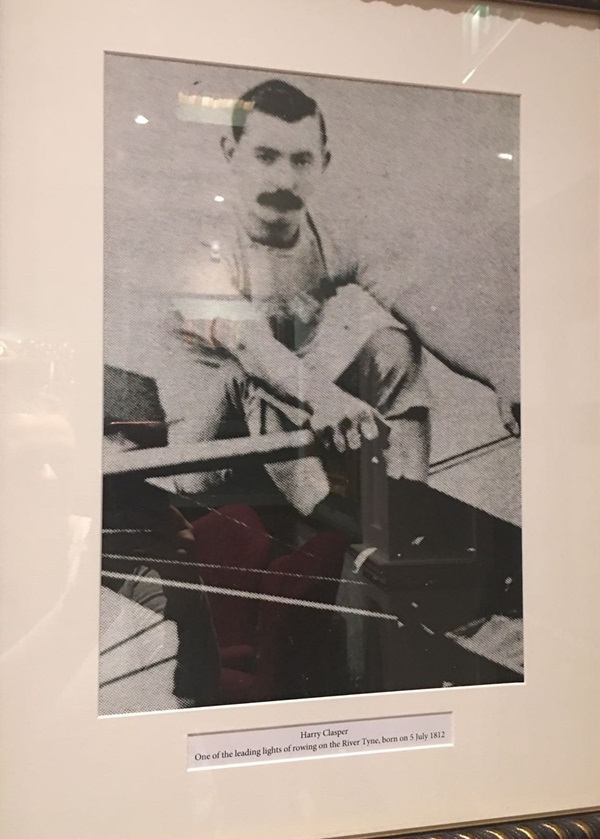
The text reads: One of the leading lights of rowing on the River Tyne, born on 5 July 1812
A photograph of Whickham Urban District Council, 1904
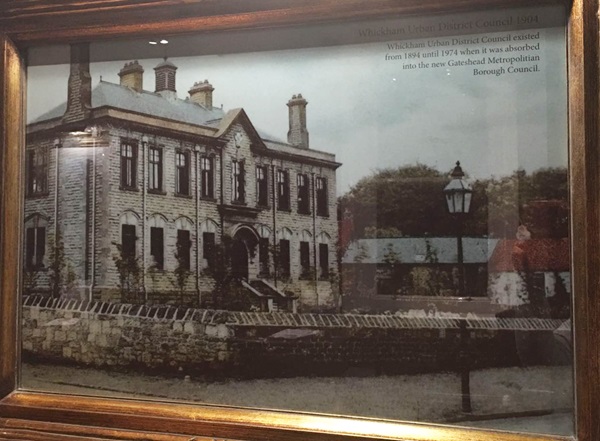
The text reads: Whickham Urban District Council existed from 1894 until 1974, when it was absorbed into the new Gateshead Metropolitan Borough Council.
A photograph of a meeting of local mayors, 1927
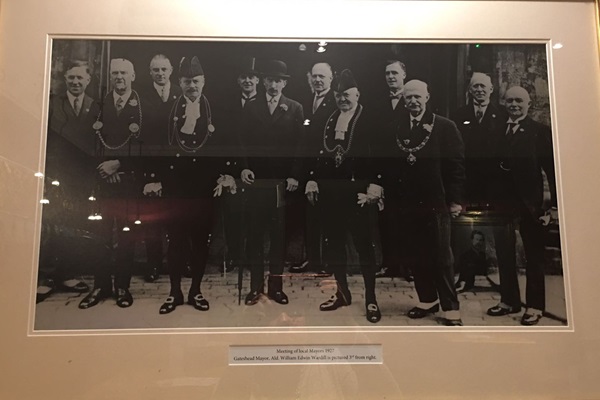
The text reads: Gateshead Mayor, Ald. William Edwin Wardill, is pictured 3rd from right.
External photograph of the building – main entrance
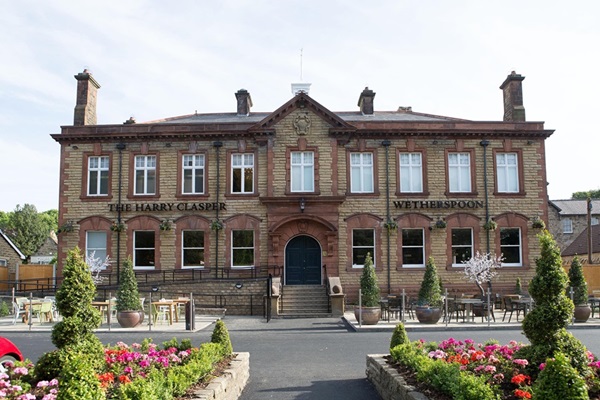
Extract from Wetherspoon News Summer 2019.
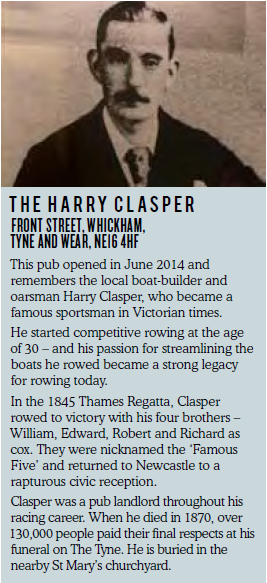
The text reads: This pub opened in June 2014 and remembers the local boat-builder and oarsman Harry Clasper, who became a famous sportsman in Victorian times.
He started competitive rowing at the age of 30 – and his passion for streamlining the boats he rowed became a strong legacy for rowing today.
In the 1845 Thames Regatta, Clasper rowed to victory with his four brothers – William, Edward, Robert and Richard as cox. They were nicknamed the ‘Famous Five’ and returned to Newcastle to a rapturous civic reception.
Clasper was a pub landlord throughout his racing career. When he died in 1870, over 130,000 people paid their final respects at his funeral on the Tyne. He is buried in the nearby St Mary’s churchyard.





